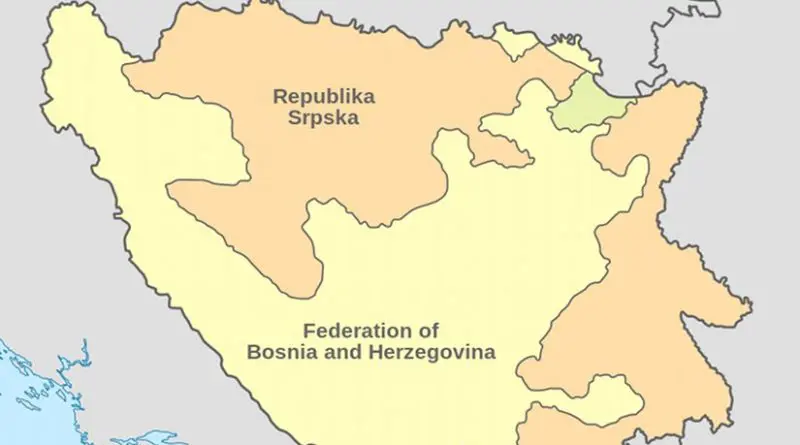Bosnian Serbs Vote To Form Reserve Police, Seen As Threat By Muslims
By EurActiv
(EurActiv) — Bosnian Serb lawmakers voted on Thursday (18 April) to introduce reserve police forces, a move seen as a security threat by Muslim Bosniaks living in Bosnia’s autonomous Serb Republic.
Bosnia emerged from ethnic war in the 1990s divided into two autonomous regions, the Serb Republic and the Bosniak-Croat Federation. The two regions have their own separate police forces while sharing a joint army.
Serb Republic Interior Minister Dragan Lukac said additional reserve police were needed to help tackle security threats posed by the arrival of migrants or bad weather.
But Bosniaks living as a minority in the Serb region said the proposal brought back memories of Serb reserve police forces which they blame for attacks on civilians early in the 1992-95 war. More than 100,000 people were killed in the conflict, and Bosnian Serb leaders were convicted of genocide.
The Serb Republic has a 7,000-strong police force, including just 350 Bosniak officers.
The regional parliament approved draft legislation to create the new reserve force, with 51 out of 83 lawmakers voting in favour and just two against.
Lukac said the reserve force would be 20% of the size of the existing police force, and recruitment would begin next year with the training of up to 200 officers.
Last year, the region’s police bought 2,500 automatic rifles, prompting criticism from Western diplomats that the force was becoming disproportionately heavily armed.
Under an amended draft law, police officers would also be given the authority to arrest people without an order from a prosecutor or court, as is now required.
“In this way, the police directly interferes in the authority of judicial institutions,” said Aleksandar Jokic, a legal expert.
Edin Ramic, a lawmaker who leads a small Bosniak bloc in the Serb parliament, said the law violated the state constitution, the European human rights convention and the criminal law providing identity protection for police informants or undercover agents.
Ramic said his bloc may try to dispute the law in parliament following a three-month public discussion.

